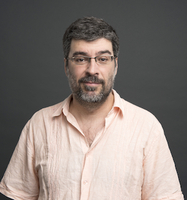
Luís A. Nunes Amaral
Professor of Engineering Sciences and Applied Mathematics
Professor of Medicine (by courtesy)
Professor of Molecular Biosciences (by courtesy)
Professor of Physics & Astronomy (by courtesy)
Engineering Sciences and Applied Mathematics
2145 Sheridan Road (Room M426)
Evanston, IL 60208, US
Phone:
+1 847-491-7850
Complex systems and networks: challenges and opportunities for chemical and biological engineers
Chemical Engineering and Science 59, 1653-1666 (2004)
Times cited: 33
Abstract
The difference between the complicated and the complex is not just quantitative; it is also qualitative. Complexity requires both an augmentation of the conceptual framework and new tools. In this manuscript we describe the challenges faced when studying complex systems and describe how scientists from many different areas have responded to these challenges. We briefly describe the toolkit used for studying complex systems: nonlinear dynamics, statistical physics, and network theory. We place particular emphasis on network theory due to the explosive rate of advance that the field has recently experienced. We argue that chemical engineering -conversant with a systems viewpoint that is deeply embedded in its culture and the ability to tackle problems across a broad range of length and time scales - is in excellent position to master and develop new tools and to tackle the many challenges posed by complex systems. To illustrate this fact, we briefly review two cases-ecologic food webs and cellular networks-where chemical engineers could have an immediate impact. (C) 2004 Elsevier Ltd. All rights reserved.